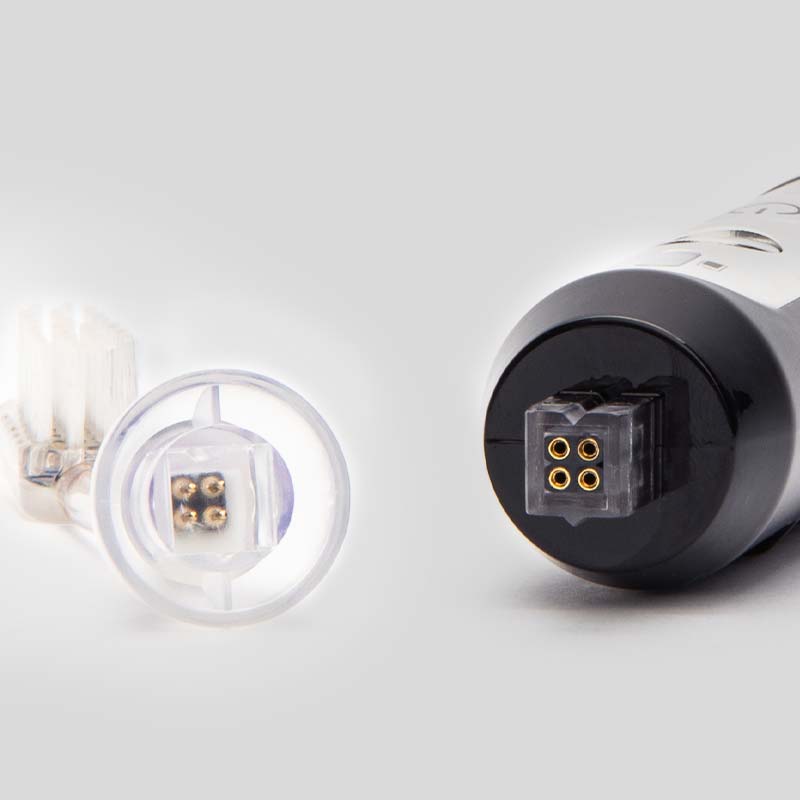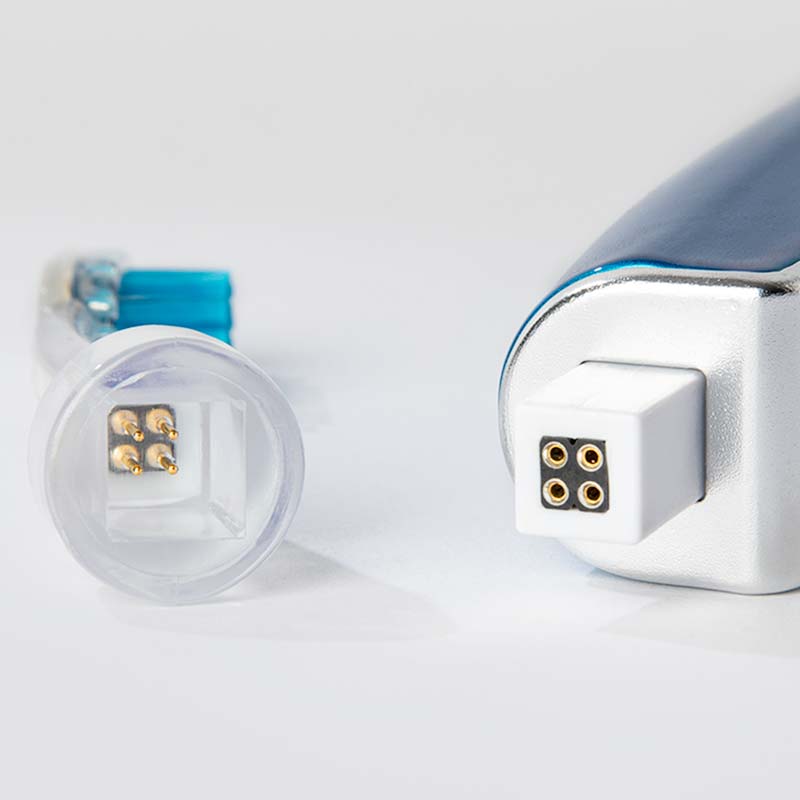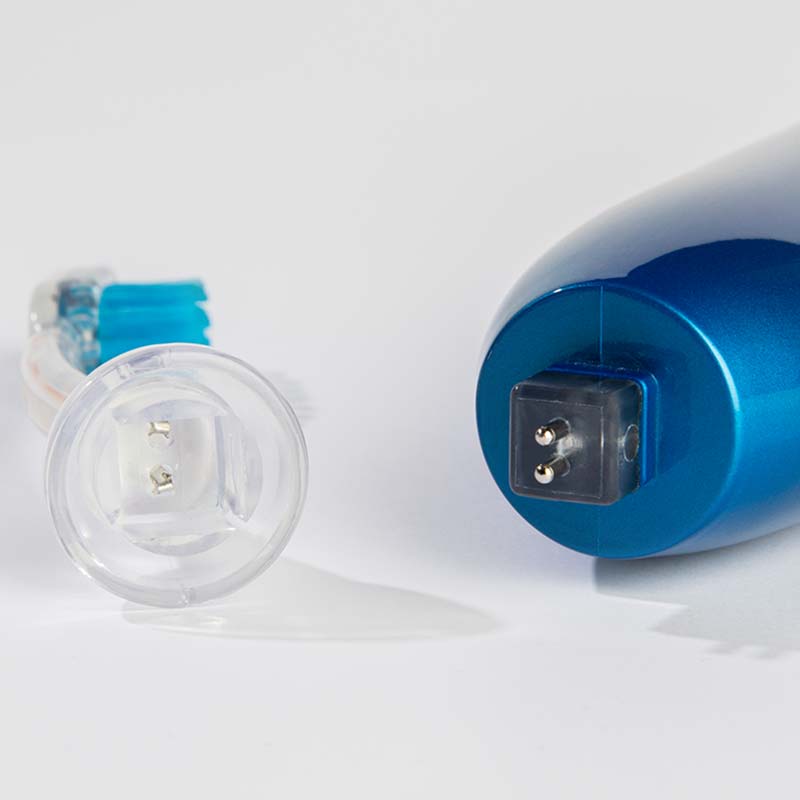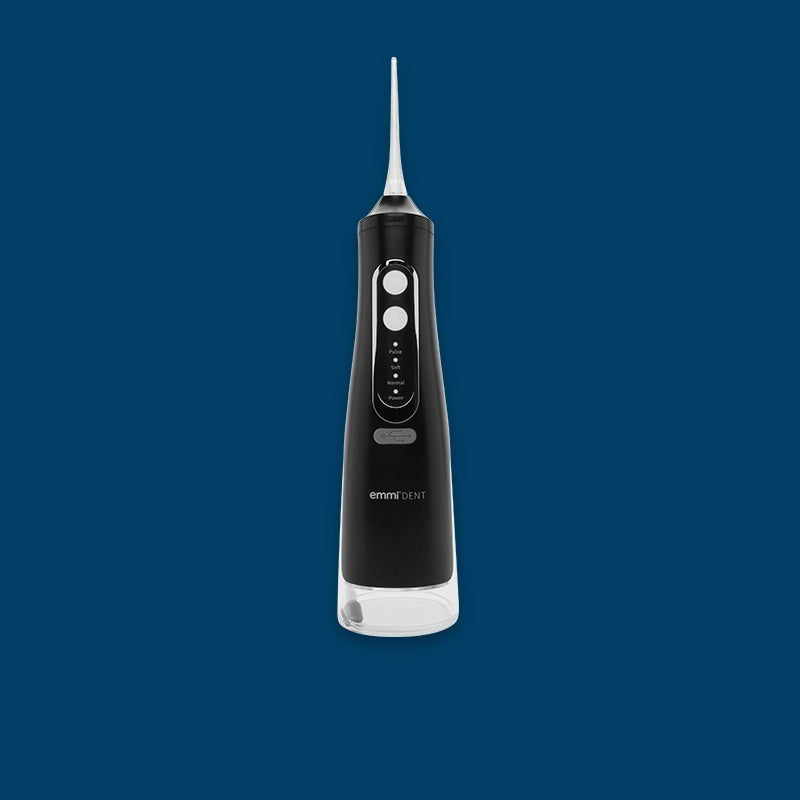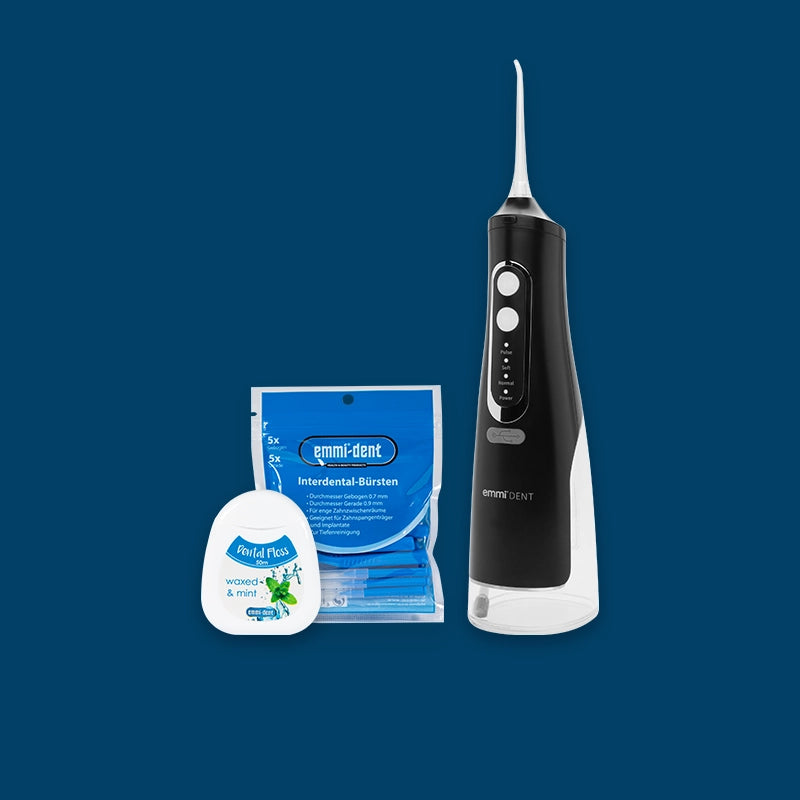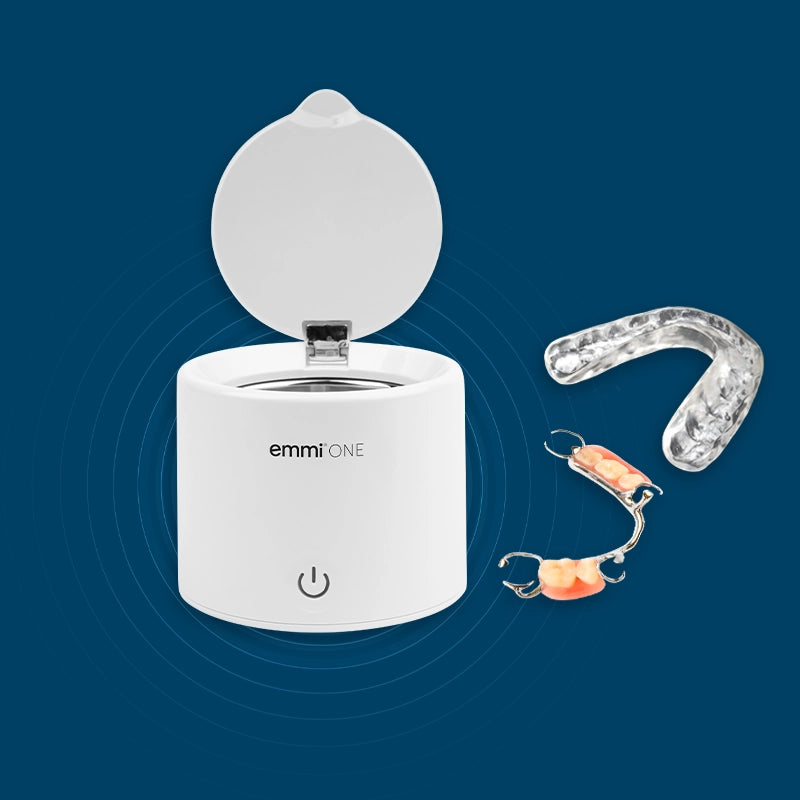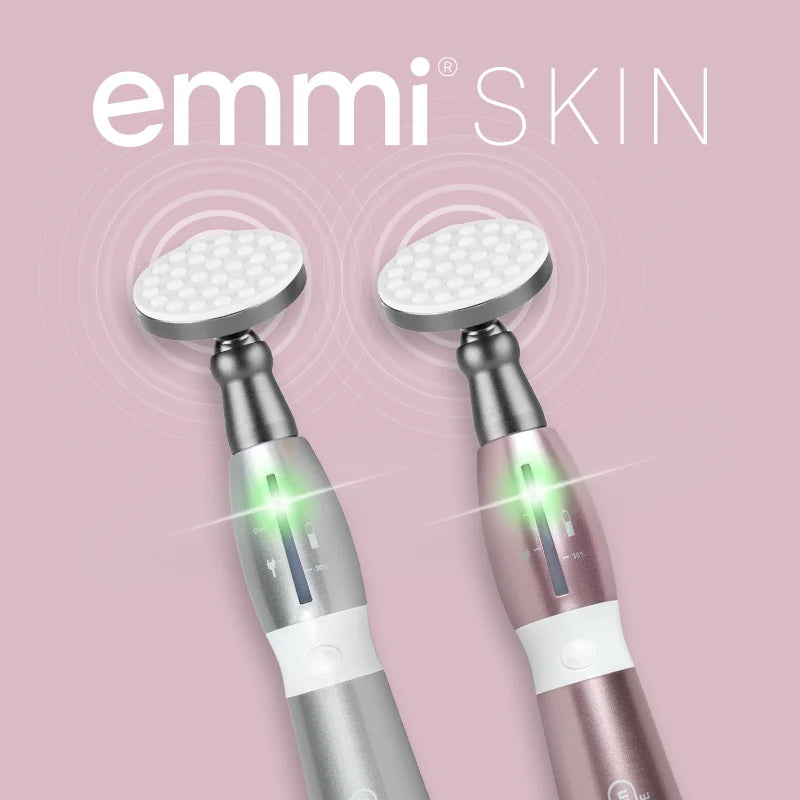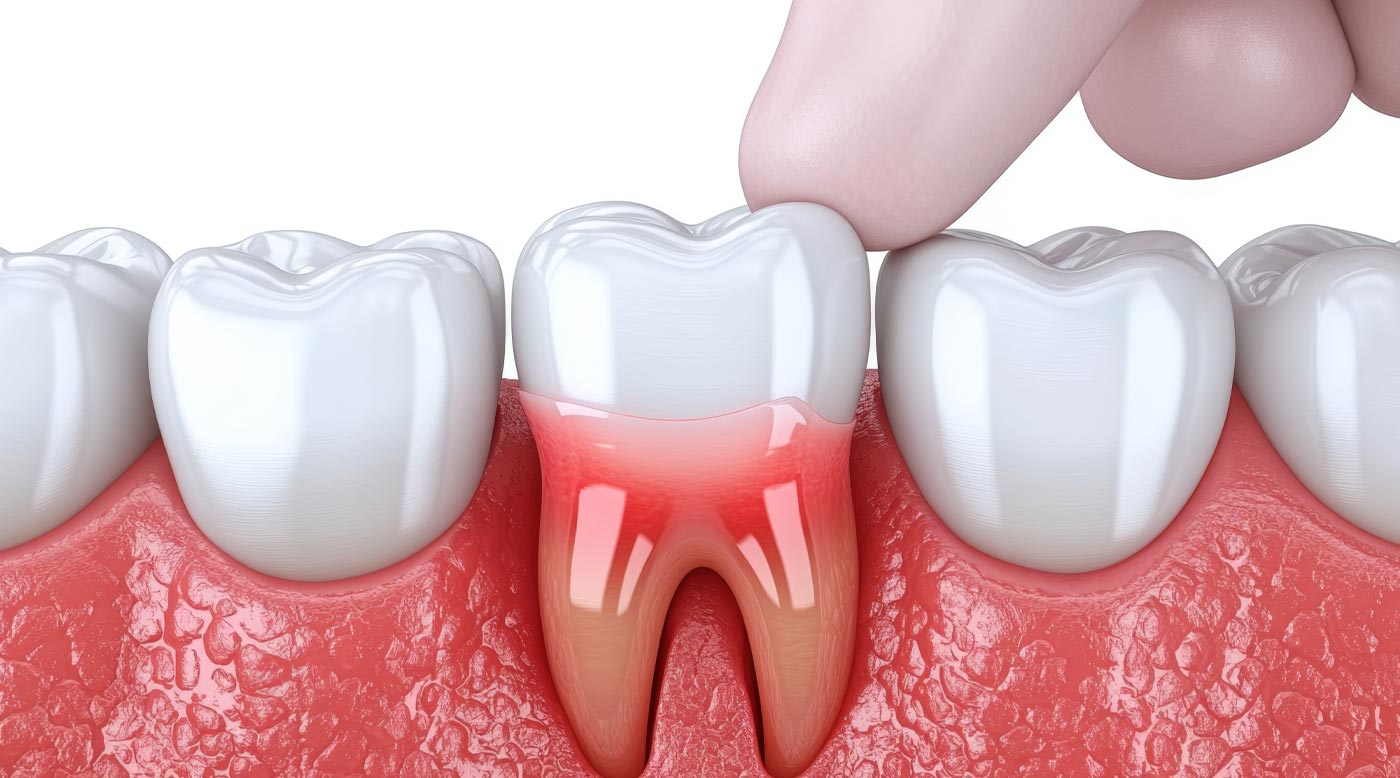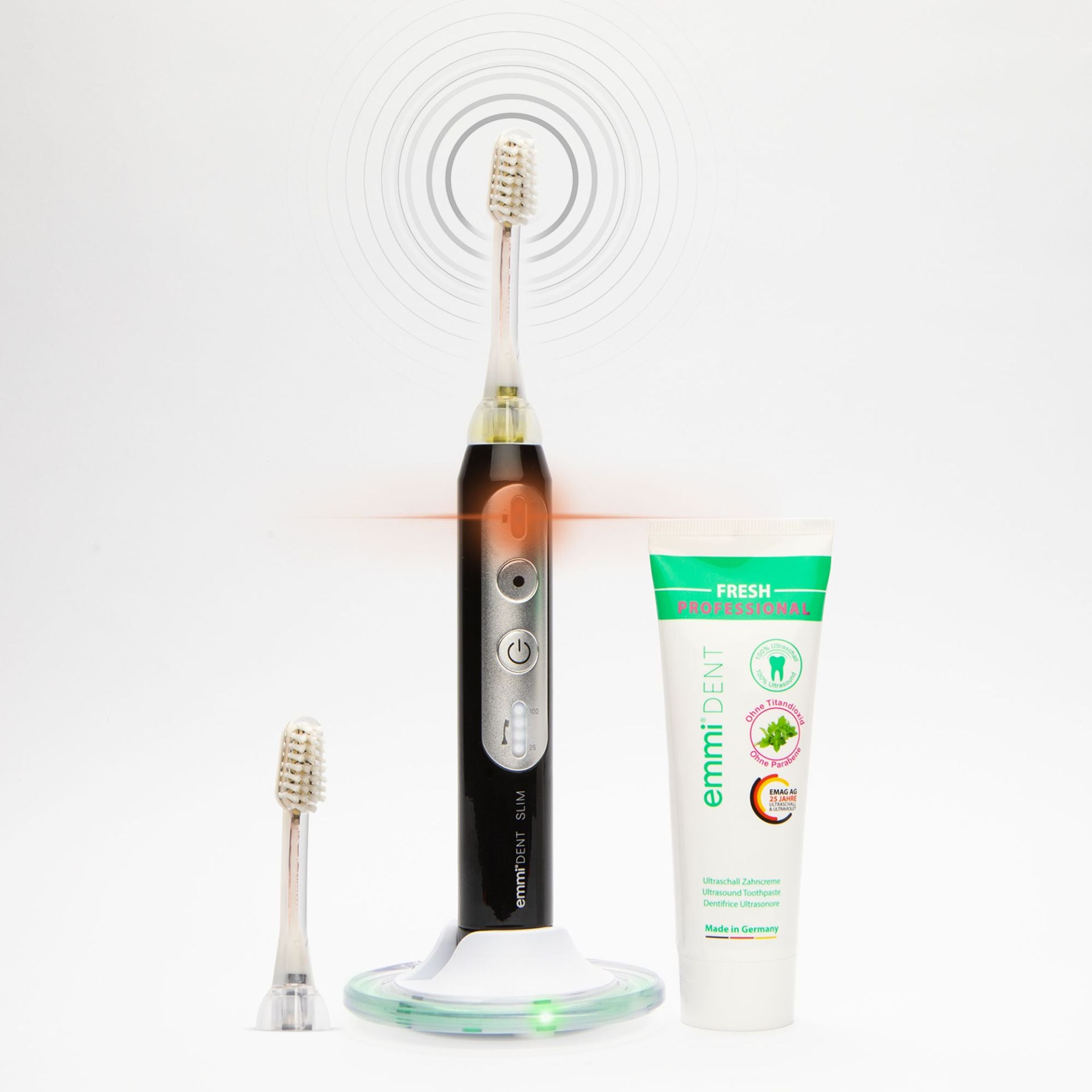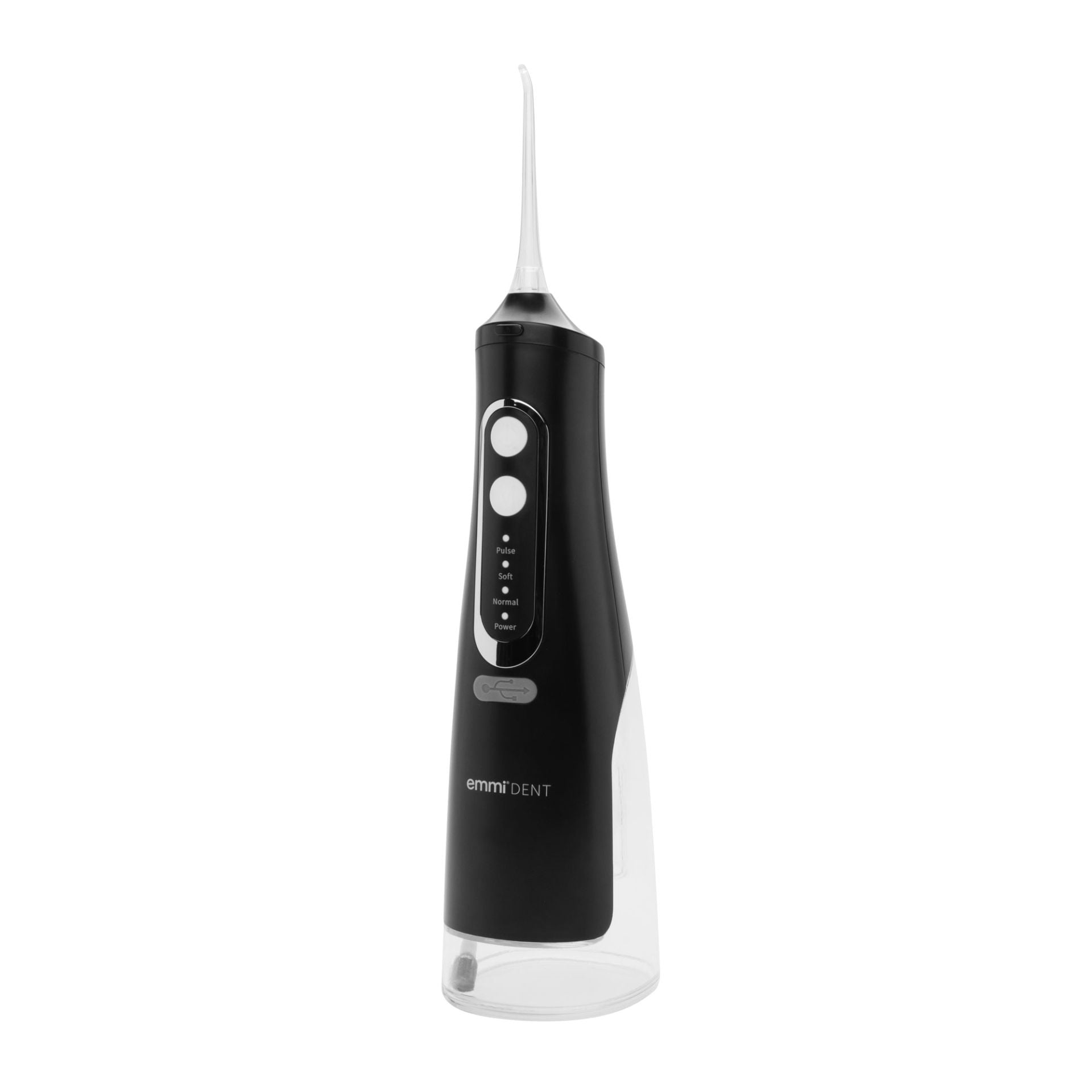Vacation, good food, good mood, and then suddenly a strong pulling sensation in the jaw that slowly develops into a throbbing pain. Joy gives way to worry, and you quickly ask yourself: Could this be coming from a tooth? What starts out harmlessly could be a sign of a tooth root infection . This is a condition that's best recognized sooner rather than later. In this article, we'll explain which warning signs you should take seriously, what's behind a root infection, what the common causes are, and how you can protect your dental health with proper dental care, for example with our emmi-dent Slim ultrasonic toothbrush .
What is a tooth root infection?
To understand why a tooth root infection can be truly dangerous, we'll explain what a tooth root infection is. It's an inflammation, medically known as pulpitis , that affects the innermost part of your tooth: the pulp. This is where the fine nerves and blood vessels that keep the tooth alive run. If bacteria get there, your body reacts with inflammation.
By the way, root canal inflammation is quite different from caries or gingivitis. While caries attacks the tooth enamel and gingivitis affects the gums, the root problem lies deeper, namely inside the tooth.
Pulpitis - when the dental nerve sounds the alarm
Inside your tooth lies the pulp, a delicate tissue made up of nerves and blood vessels. When it becomes inflamed due to caries, bacteria, or irritation, it's called pulpitis . There are two types:
In reversible pulpitis , the inflammation is still in its early stages. The tooth reacts sensitively to stimuli such as sweet, cold, or hot foods—but it can recover if you act early enough and treat it gently.
The situation is different with irreversible pulpitis : Here, the inflammation has already progressed so far that the dental nerve is permanently damaged. The pain becomes more intense, often throbbing or persistent – root canal treatment is usually the only option to save the tooth.
That's why early detection is so crucial. The sooner you react to the first symptoms, the greater the chance of saving the tooth without major surgery. Gentle dental care, regular checkups, and being sensitive to painful changes are your best protection.
Early detection: The most important warning signs of tooth root inflammation
Your gums often make themselves known before things get serious, but quietly and subtly. A slight tightness, some redness, or a tiny drop of blood while brushing your teeth? These aren't minor things, but valuable signs from your body. Recognizing them early can prevent inflammation before it spreads. In this section, you'll learn which signs you should keep an eye out for and why early detection is so crucial for your oral health.
Dull vs. stabbing toothache
Most people notice it as an unpleasant feeling of pressure, often described as Dull, deep, and not always easy to locate. Sometimes, however, it's a sudden, stabbing pain that makes you jump. Both can indicate an infection of the tooth root.
Sensitivity to hot/cold, pressure sensitivity
Do you drink hot tea or bite into a cold piece of fruit and the pain comes out of nowhere? This hypersensitivity is another typical sign of a possible tooth root infection .
Swelling, throbbing and bad breath
As the inflammation spreads, you may experience mild swelling , throbbing pain , or even an unpleasant odor from the mouth . The latter is almost always an indication that pus may have already formed.
If you notice the following, see your dentist immediately:
- Sudden pulling or throbbing in your tooth?
- Reaction to hot or cold stimuli?
- Sensitivity to pressure when chewing?
The sooner you have symptoms like this checked out by your dentist, the better.
Common causes and risk factors for tooth root inflammation
Have you ever wondered: How does a tooth root infection even occur?
- Caries is the most common cause: if left untreated, bacteria migrate into the pulp.
- Inadequate oral hygiene promotes the formation of plaque – and thus inflammation.
- Lack of fluid weakens the natural protective function of saliva.
- Tooth injuries , e.g. due to accidents or excessive grinding.
- Smoking and a weakened immune system increase the risk.
What's particularly insidious is that many of these risk factors have a subtle effect. This makes good preventative care in everyday life and a visit to the dentist at the first signs all the more important.
Why good dental care is crucial against tooth root inflammation
You can do a lot to prevent harmful bacteria from even getting close to your tooth roots. The key is daily oral care—not just any old routine, but thorough, gentle, and in the right places . It's crucial that you reliably remove plaque and tartar , even where they like to hide: in the narrow spaces between your teeth, along the gum line, and in the small nooks and crannies of your mouth.
Case Study: Why Ultrasound Really Makes the Difference
This is exactly where our emmi-dent Slim comes in. An ultrasonic toothbrush that doesn't just clean, but works with modern technology. It cleans completely frictionlessly — without pressure or mechanical movement —but with millions of active microbubbles . These penetrate even the smallest spaces and dissolve harmful bacteria and their deposits where traditional bristles reach their limits. And they do it particularly gently! Our emmi-dent ultrasonic toothbrushes are a real advantage for anyone with sensitive gums or sensitive teeth.
This gentle yet effective cleaning is a real game-changer, especially when it comes to preventing and preventing root canal infections . Because the better you control the harmful bacteria, the lower the risk of them making their way deep into your teeth.
Treatment options & when to see a dentist?
Whether mild sensitivity or severe throbbing, when it comes to a tooth root infection – also known as pulpitis – one thing is most important: quick action . Treatment options vary considerably depending on the stage of your infection. What may be gentle and uncomplicated to treat in the early stages can develop into a complex treatment if delayed too long.
In reversible pulpitis , i.e., in the early stages, thorough caries removal followed by filling is usually sufficient. Sometimes, a medicated filling is sufficient to soothe the irritation and give the dental nerve time to regenerate.
However, if the inflammation has already progressed – known as irreversible pulpitis – the dental nerve can no longer be saved. In most cases, root canal treatment is necessary. This involves removing the inflamed tissue inside the tooth, cleaning and disinfecting the canal, and then sealing it to prevent bacteria from entering.
In very severe or chronic cases, surgical treatment, such as a root canal resection , may even be necessary. If the tooth can no longer be saved, the only remaining option is sometimes extraction . The sooner you see a dentist, the easier, faster, and less damaging the treatment will be. And the higher the chances of saving your tooth.
Prevention in everyday life – protect tooth roots every day
A tooth root infection rarely develops overnight. It's the result of bacteria that have been able to function undisturbed for a long time. This makes it all the more important to maintain the right daily routine: gentle dental care, a healthy diet, and a little attention to your body's signals.
Brushing thoroughly twice a day sounds obvious, but it's often underestimated in everyday life. However, the technique is crucial for removing plaque where it causes the most damage, especially between the teeth and at the sensitive gum line.
What really matters:
• At least 90 seconds per cleaning
• Tooth by tooth , focusing on the gum line
• Gentle movements , without pressure and without scrubbing
If you have sensitive gums or are looking for a solution suitable for everyday use with children, our emmi-dent Slim is the perfect choice. It cleans completely without mechanical movement. 0% friction, 100% ultrasound . Millions of tiny microbubbles enclose harmful bacteria and their deposits, even in the smallest spaces, without irritating the mucous membranes. It's a real plus for anyone who wants to actively prevent gum inflammation or tooth root problems.
Your diet can also contribute significantly to dental health. Drinking plenty of fluids is especially important in summer. Water stimulates saliva flow, and saliva is your natural protective layer against acids and bacteria.
emmi-dent tips:
- Less sugar , especially between meals
- Vitamin-rich food with fruit, vegetables and whole grain products for a strong immune system
- Tooth-friendly snacks such as apple slices, cucumbers or cheese cubes, which also support the self-cleaning of the mouth
With these three tips, you can ensure that inflammation doesn't even get a chance and your smile stays healthy, day after day.
FAQ: Tooth root infection
We're constantly receiving questions about root canal infections. From the initial symptoms to proper aftercare. It's no wonder, especially when a tooth suddenly feels aching or throbbing, so uncertainty is high. Below, we answer the most frequently asked questions about this sensitive topic.
How long can I ignore a tooth root infection?
Not for long! If left untreated, the inflammation can spread to the jaw.
Does mouthwash help?
Only to a limited extent. It can alleviate symptoms, but it's not a substitute for thorough cleaning or dental treatment.
How do I notice the difference to “normal” toothache?
Tooth root pain is often deep, throbbing and sensitive to pressure .
Does cooling help?
For a short time, yes, for relief. But please not as a substitute for a doctor's visit!
When is root canal treatment necessary?
If the pulp is irreversibly inflamed, only your dentist can reliably diagnose this.

